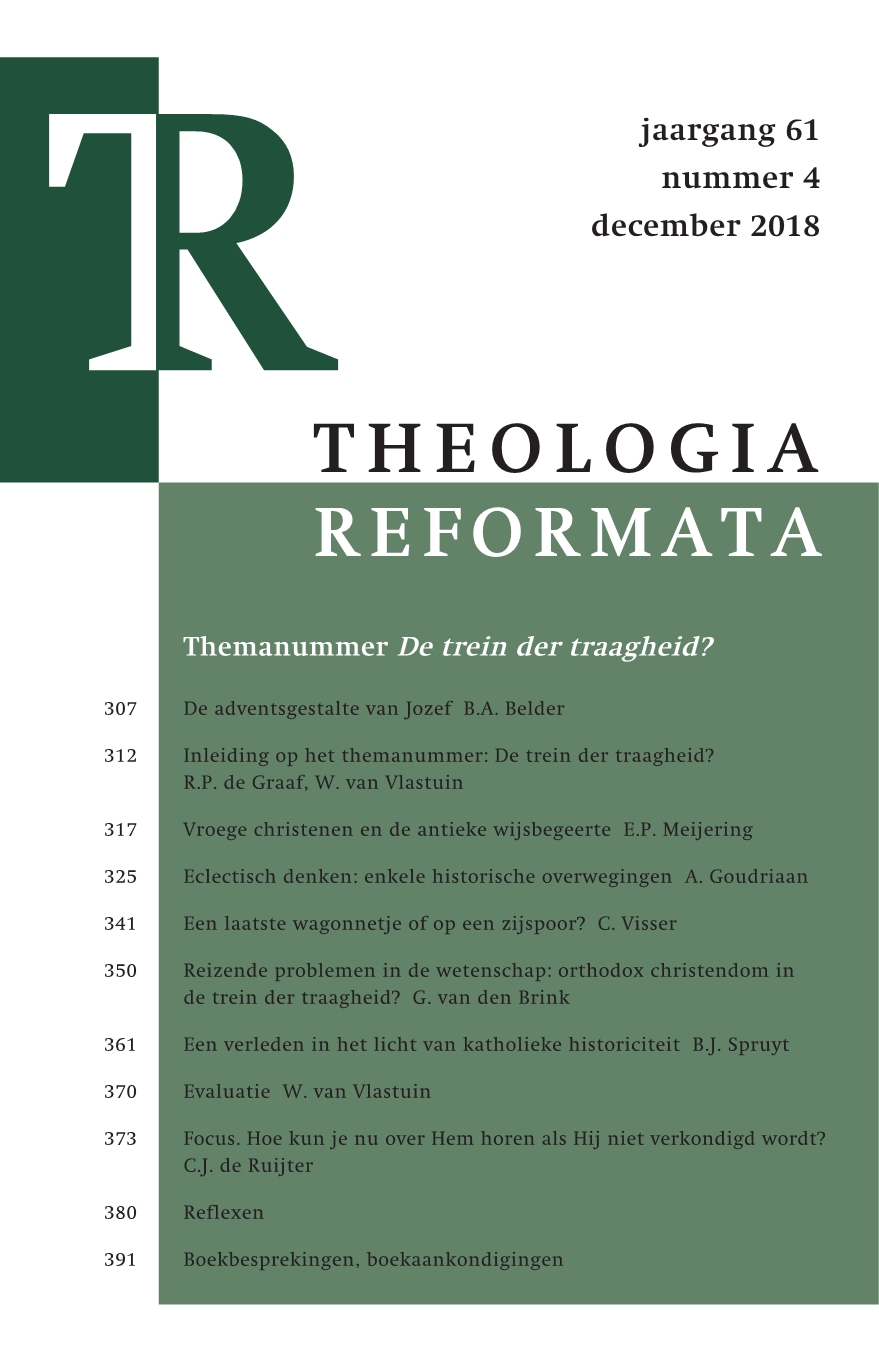Eclectisch denken: enkele historische overwegingen
DOI:
https://doi.org/10.21827/5be58d10adf45Samenvatting
Starting from the assumption that education and scholarship are important venues for the transmission and preservation of culture, this article notes that non-Christian writings have had a significant and lasting impact throughout the history of learning in Western Christianity. It is then argued that eclecticism, the selective and critical usage of texts and ideas from various backgrounds, has been a deliberate practice in Christian history. As an expression of independent thinking, eclecticism allows the positive use of what a critical inquiry has shown to be “good” (1 Thess. 5:21) in nonChristian (and Christian) sources. When it succeeds in maintaining its critical independence and its commitment to truth, eclecticism does not produce what G.W.F. Hegel called “superficial aggregates”.

